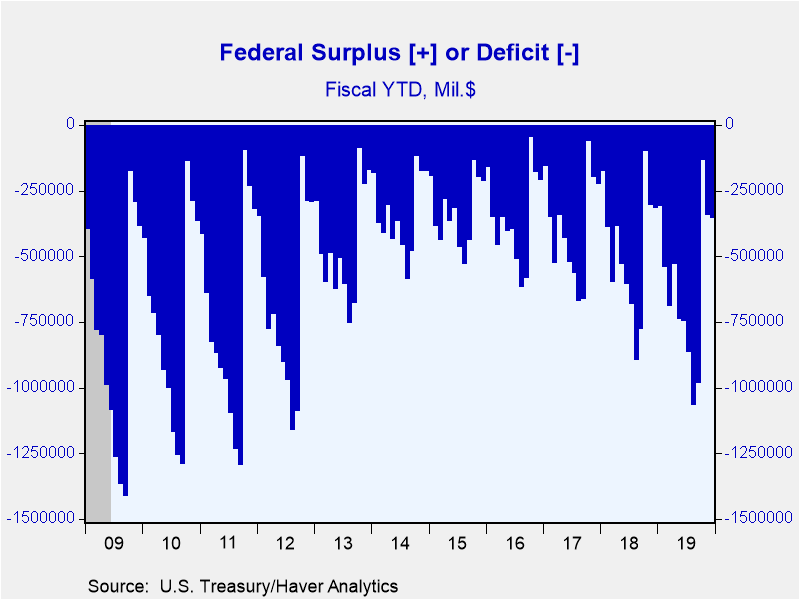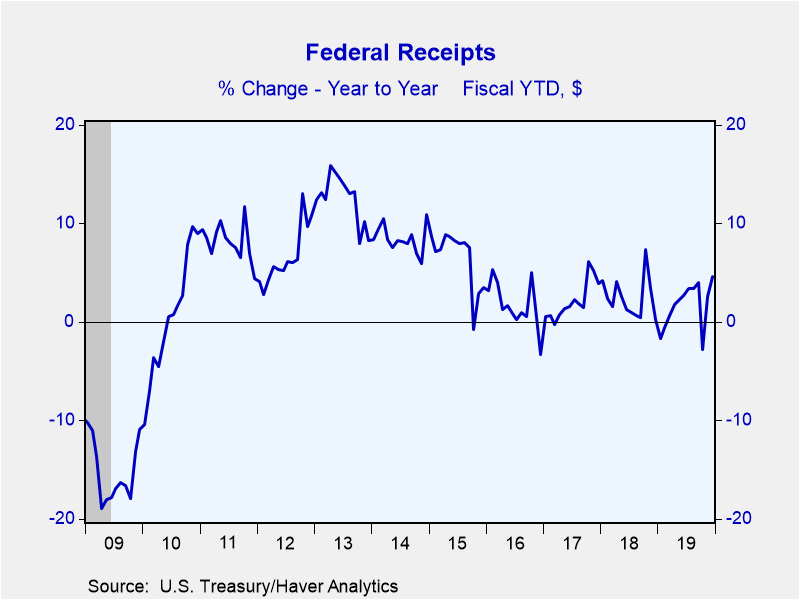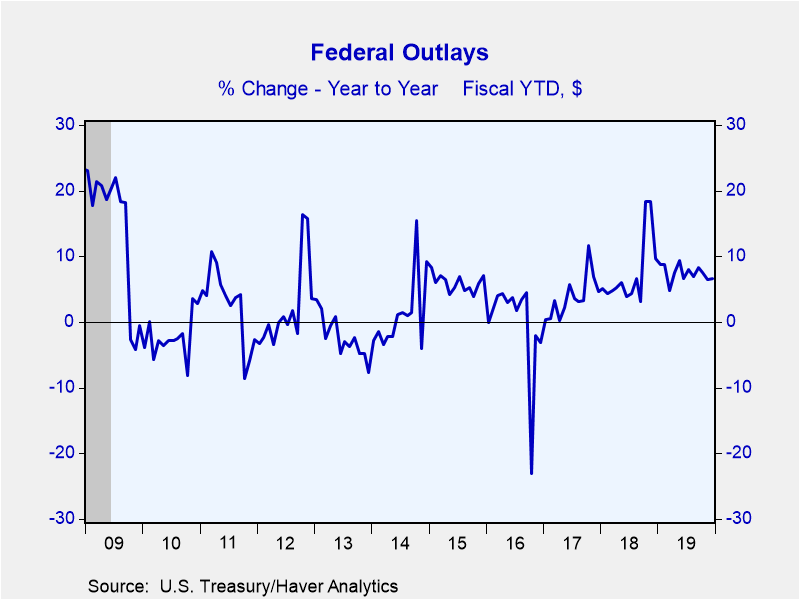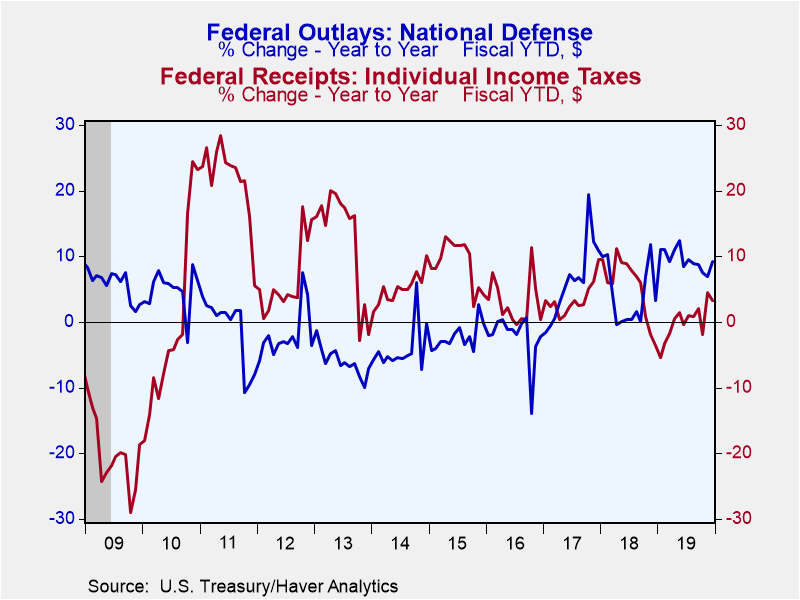 Global| Jan 13 2020
Global| Jan 13 2020U.S. Government Budget Deficit Is Little Changed
by:Tom Moeller
|in:Economy in Brief
Summary
The U.S. Treasury Department reported that the federal government ran a $13.27 billion budget deficit during December compared to a $13.54 billion deficit twelve months earlier. A $14.3 billion deficit had been expected in the Action [...]
The U.S. Treasury Department reported that the federal government ran a $13.27 billion budget deficit during December compared to a $13.54 billion deficit twelve months earlier. A $14.3 billion deficit had been expected in the Action Economics Forecast Survey. For the first three months of this fiscal year, the budget deficit rose to $356.58 billion from $318.93 billion one year earlier.
So far this fiscal year, federal government receipts rose 4.6% y/y. Personal income tax revenues grew 3.2% y/y so far this fiscal year while corporate tax receipts improved 19.9% y/y so far in FY 2020. Social insurance taxes grew 5.7% y/y this fiscal year and customs duties, which include tariffs, jumped by 18.6% y/y.
In FY 2020, total federal government outlays have risen 6.7% y/y. Outlays on national defense programs grew 9.2% and have been growing at roughly that rate since early in 2019. Growth in Medicare outlays remained firm at 8.0% y/y so far this fiscal year, while outlays on health programs grew 5.3% y/y in FY 2020 after a 6.1% y/y gain in FY 2019. Spending on Social Security increased a steady 5.9% during the first three months of FY 2020. With the low unemployment rate, spending on income security programs grew a lessened 2.2% so far in FY 2020.
Haver's data on Federal Government outlays and receipts as well as CBO forecasts are contained in USECON; detailed data can be found in the GOVFIN database. The Action Economics Forecast Survey numbers are in the AS1REPNA database.
Tom Moeller
AuthorMore in Author Profile »Prior to joining Haver Analytics in 2000, Mr. Moeller worked as the Economist at Chancellor Capital Management from 1985 to 1999. There, he developed comprehensive economic forecasts and interpreted economic data for equity and fixed income portfolio managers. Also at Chancellor, Mr. Moeller worked as an equity analyst and was responsible for researching and rating companies in the economically sensitive automobile and housing industries for investment in Chancellor’s equity portfolio. Prior to joining Chancellor, Mr. Moeller was an Economist at Citibank from 1979 to 1984. He also analyzed pricing behavior in the metals industry for the Council on Wage and Price Stability in Washington, D.C. In 1999, Mr. Moeller received the award for most accurate forecast from the Forecasters' Club of New York. From 1990 to 1992 he was President of the New York Association for Business Economists. Mr. Moeller earned an M.B.A. in Finance from Fordham University, where he graduated in 1987. He holds a Bachelor of Arts in Economics from George Washington University.
More Economy in Brief
 Global| Feb 05 2026
Global| Feb 05 2026Charts of the Week: Balanced Policy, Resilient Data and AI Narratives
by:Andrew Cates










